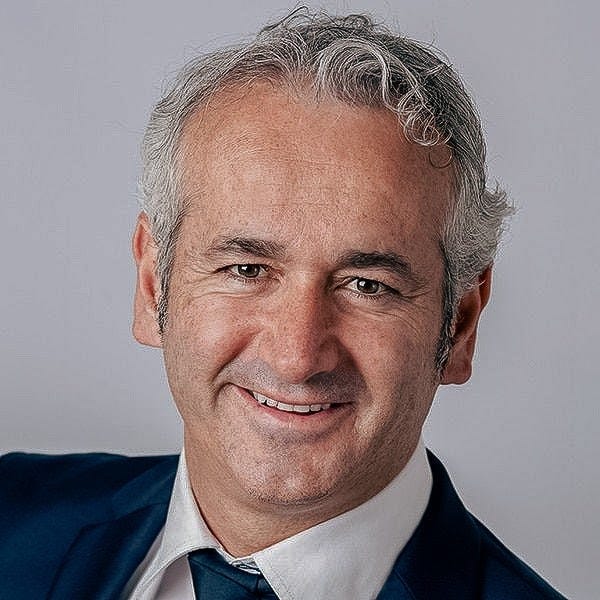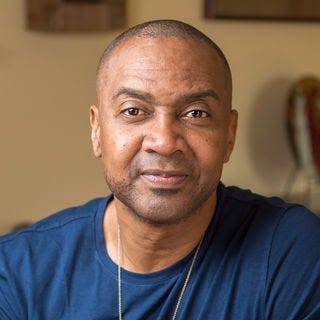Week 22.07 Mind Wandering
Last week, I went for my first in-person breakfast meeting in a long time. I prepared for the journey, wore clothes I have not really worn in over a year. I didn't go so far as to pack food, although it was tempting. This formerly routine task has become foreign! Of all the observations of my previously mundane routine of travel, I was struck by how long it took to get there and back. That became the story I shared with people during the day. There was also a second story also. How nice it was to have a little time not working, looking at a screen, moving from task to task. During my "commute" I realized that it has become too easy to fill the day with meetings, emails, proposals, tasks, and to-dos.
That thought was brought to my attention again when I heard Ezra Klein interview Johann Hari talking about attention. Hari recently wrote a book called "Stolen Focus," The podcast was a vibrant conversation about our most precious commodity… attention. I have heard many people speak of time as our most precious commodity. Attention is what we do with our time. As with anything valuable, companies are vying for our attention. I suspect we have all had the experience of having social media, phone calls, text, YouTube autoplay, pick your poison, steal our attention.
They brought up an aspect of attention that we don't often think of "non-focused attention" or Mind Wandering. When we do think about it, it is described negatively. Mind Wandering is different from jumping from task to task. It is space without "purpose", room to be bored, process information, connect the dots, and be creative. It is the space in which the brain can relax and refresh. There is a lot of cultural pressure to use our time on doing things or adding new information. When we have a "down moment," we can check an app for news, tweets, updates, research - there is a limitless supply of inputs to add to our existing knowledge. Mind Wandering is seen as an unproductive time when we are not accomplishing things that can be measured. It is not the kind of time that demands your attention; you need to fight off all of the other internal and external demands on your attention to make room to not focus. It turns out that "unproductive time" is actually very productive.
The Mind Wandering space is where great innovation happens. It is the daydreaming space in which we imagine the non-obvious answers. It is where we consider our long-term goals and big-picture reflections. It is the space in which our brain regenerates our neural connections, explores new ideas, dreams of what could be, and processes what has been. It is the opposite of the multi-tasking switching world that is hard to escape. I have heard that it takes 20 mins to get our minds back into a task when we switch out that we are 30% less productive when we multi-task. Even worse, we feel like we are accomplishing much when we are switching - exhausted by the end of the day. Sadly, it leaves a day that looks too much like mowing the lawn and not enough like planting a garden.
I am going to start to think about my attention as planting a garden. I'll begin with a bit of time to design the garden, what I can have in it and what I will have to forgo for this season. After designing it, I will prepare the soil, plant the seeds, and tend to it with Mind Wandering regularly, keeping some of my attention set aside for this purpose. My good friend Martin Lindstrom, one of the most creative and innovative people in the world, gave up his cell phone years ago because he could see how easy it was to absorb all of his downtime and rob him of boredom. I don't think I can do that, but I will find a way to make this time as important as any other. And I will support the people I care about to do the same. In life and leadership, we need to understand the importance of holding aside some of our attention for this restorative work. We need to do more than respect other people's boundaries (phones down at night?) and support them to create this space. The world is conspiring for our attention, and noise, pollution, technology, the light of our screens, our lack of sleep, even some of the food we eat diminish our capacity. We need to work together to restore our lives to flourishing by giving ourselves the regular gift of Mind Wandering.
FREE Course on Humane Productivity by Rahaf Harfoush
Humane Productivity as a part of their Burnout Prevention initiative! The entire course will be completely free to everyone from Feb 14 - March 3.
It might seem counterintuitive, but to get more done, you have to work less. Working hard in pursuit of our goals is a hardwired belief, one that has resulted in productivity ideals that are unrealistic—or even unattainable. Non-stop hustle doesn’t guarantee better performance (the research is very clear about this), it just guarantees more work. In this course, Rahaf Harfoush teaches you how to rethink productivity (hint: productivity is not about feeling guilty if you're not productive), and build sustainable productivity practices that support your well-being, rather than drain you mentally or burn you out. Rahaf debunks outdated productivity myths and shows you new ways to manage your energy to design a system of working that is more aligned with your creative cycles, instead of focusing on productivity tips that do more harm than good. EVERYONE needs this course right now. Please click and share https://www.linkedin.com/learning/humane-productivity?trk=lilblog_2-07-22_well-being-instructors_learning
Mark Thomspon Inducted into the Global Gurus 2022 Hall of Fame
Mark Thompson has honored with the 6th Global Gurus Corps d’Elite Lifetime Achievement Award in the Coaching Category of the world’s top thought leaders in 2022. New York Times bestselling author Mark is a leadership coach for the world’s fastest-growing, most innovative companies—from LYFT CEO & Cofounder Logan Green, Pinterest Cofounder Evan Sharp and World Bank CEO Dr. Jim Kim, to founders Richard Branson, Steve Jobs, and Charles Schwab, for whom he served as the world’s first CXO—Chief Customer Experience Officer. He is an expert on executive leadership, business strategy, and innovation who has spent over 25 years leading teams and building companies from the ground up. He delivers actionable, valuable and practical advice for leaders at all levels of an organization. Global Gurus Corps d’Elite Lifetime Achievement Award
Virtual Tea date and time: Wed, February 16, 2022, 5:00 PM - 6:00 PM EDT
Here is the link to our Design the Life You Love Virtual Tea which you can also share with colleagues, friends, and family.
Michael Bungay Stanier is our extra special tea guest this week. I met Michael at the very first Marshall Goldsmith 100 Coaches meeting. After we went home, Michael wrote and published this article on LinkedIn, When You’re Out of Your League (or: My Weekend with Marshall Goldsmith and Friends). I recommend you read the article to understand what a decent person Michael is. I bet you’ll be in awe of his humility and honesty, just like me. Michael Bungay Stanier’s latest book is, How to Begin, Start doing something that matters. Michael says, this is your one and precious life and that he wants you to do something with it. We can't ask for a better guide to help us Design The Life of Purpose You Love. Dean Miles came with his daughter last week! All ages (12-90+) and disciplines are welcome!
What's Trust Got to Do with It: Strangers, Connections, and Partners? (Dr. Richard Osibanjo)
What’s trust got to do with you making a significant impact? Everything! Show me a high performer, productive organization, or happy customers, and you will find that there are strong relationships and results present. Trust is not just a “second-hand” emotion. In today’s volatile, uncertain, complex, and ambiguous environment, your ability to influence and build trusting relationships is what accelerates results. Trust creates opportunities. Opportunities give you visibility and scale. Your expertise alone is not enough to close the deal. You need more friends to become a person of influence. What's Trust Got to Do with It: Strangers, Connections, and Partners?
Why Do Most Projects Fall Short of Expectations (Ruth Gotian on Antonio Nieto-Rodriguez)
In his new book, HBR's Project Management Handbook, Antonio Nieto-Rodriguez, presents a new blueprint for project managers to follow, which has an illuminating premise. First, instead of focusing on the operations, concentrate on the benefit of the project. He recommends showing a direct line between the project, its benefits, and your strategy. Next, display when the project delivers value. Finally, track the progress toward providing the benefits to remind everyone of the greater purpose. Project Canvas helps keep the focus on the value and benefit of a project instead of the process and control, where most projects stall and lose effectiveness. The Project Management Handbook offers a perfect playbook to take on any project and create a movement that inspires. Read the whole article in FORBES
Quote of the week: Resmaa Menakem Change culture and you change lives. You can also change the course of history
And, as always, thank you, Marshall, for making all of this possible.
With love and gratitude
Scott













